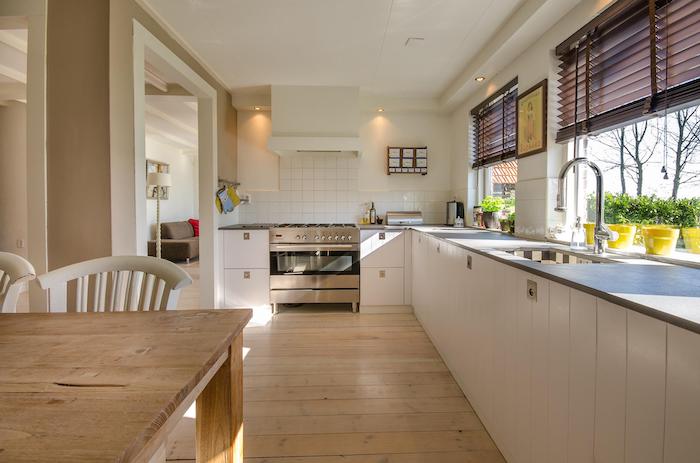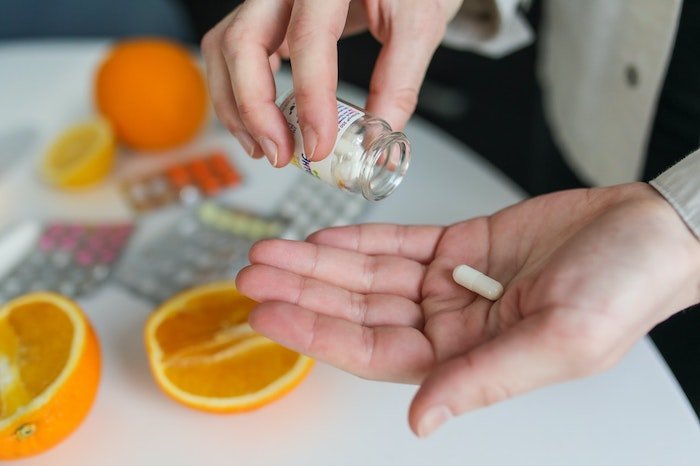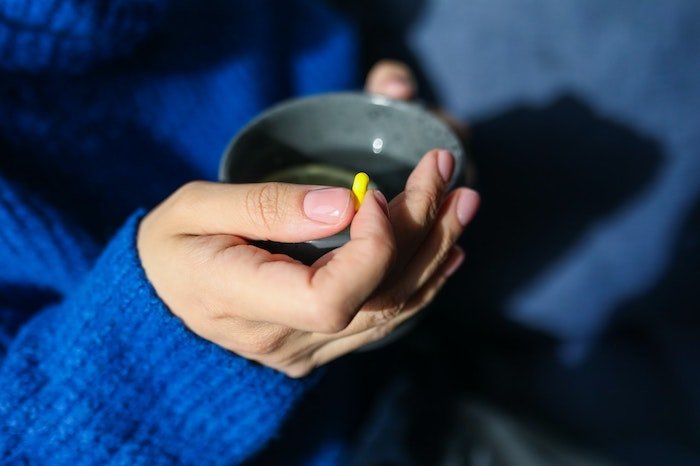Drug and Alcohol Rehab in Cumbria
When you think of Cumbria, alcohol and drug addiction may not be the first thing that comes to mind.
You may conjure up picturesque and rural scenes, and whilst Cumbria is known for these things, many of its residents are struggling with addiction like many places across the UK.
Addiction knows no bounds and can affect any type of person from any walk of life.
There were 96 drug-related deaths and 63 alcohol-related deaths recorded in Cumbria in 2020. [1] [2]
Clearly, a high rate of alcohol consumption or frequent drug use can be deadly.
At OK Rehab, we support all clients no matter their background and want to help you find an addiction rehab centre in the Cumbria area best suited to your needs.
By calling our friendly team, we can help refer you to a residential facility with an alcohol or drug rehab treatment programme tailored to your individual needs.
Partaking in inpatient treatment at a substance abuse rehab clinic in Cumbria means you have the best chance of facing a successful, life-long addiction recovery.
Many studies around addiction have shown that the best way to abstain completely from drug and alcohol addictions is to enter a full-time rehabilitation programme.
We understand this may not be possible for everyone. Still, we encourage you to consider it and explore this option as it can benefit you greatly and see you into addiction recovery sooner than you might think.
Our experts can help you access an alcohol & drug rehabilitation programme in Cumbria for any substance addictions, including:
- Binge drinking and alcoholism treatment
- Benzodiazepine addiction treatment
- Buprenorphine addiction treatment
- Cannabis addiction treatment and a guided cannabis addiction rehabilitation programme
- Cocaine rehab and crack cocaine rehab
- Crystal meth detox and other amphetamine addiction treatment
- Ecstasy rehab
- Fentanyl addiction treatment
- Heroin addiction treatment and other forms of opiate addiction and opioid use disorder treatment
- Ketamine addiction treatment
- Methadone rehab
- Mephedrone addiction treatment
- Nicotine addiction
- Prescription drug addiction & abuse treatment
- Treatment for behavioural addictions such as gambling addiction, shopping addiction, exercise addiction, internet addiction, sex addiction, pornography addiction, gaming addiction and eating disorder treatment
Find your way free of addiction at drug and alcohol rehab Cumbria – call our addiction recovery team today on 0800 326 5559
Do I need to go to drug & alcohol rehab Cumbria?

You may have begun to examine your relationship with drugs and alcohol and wonder if you are truly addicted.
Here are some questions to ask yourself if you believe it may be time for you to attend a substance abuse rehab centre.
- Can you function daily without using drugs or alcohol? Are you dependent on substances to see you through the day? Have you tried to quit but failed?
- Have you lied to friends or family about your drug use? Do you feel that you mistreat people depending on your mood? Do you avoid events and meetings so you can take drugs or alcohol?
- Are you in financial trouble or have borrowed money you can’t pay back?
All of these things could indicate that you need to seek help and rehab admission as soon as possible.
For a more formal addiction diagnosis, you can reach out to your GP or an addiction support organisation and share your concerns.
These services can conduct a wide range of effective addiction diagnosis tests, such as
- The AUDIT (Alcohol Use Disorders Identification Test)
- The DSM-5 (Diagnostic and Statistical Manual of Mental Disorders – 5th edition) Criteria
- The CAGE questionnaire
- The ASAM (American Society of Addiction Medicine) Criteria
Any of these can make clear the extent and severity of an addiction, allowing for the development of a personally tailored addiction recovery treatment plan for each patient.
If you are committed to seeing a change, there is no better time to enter a substance abuse rehab than today. Get in touch with our friendly team so we can help you find a local rehab treatment centre in Cumbria.
Start your recovery journey today at a drug and alcohol rehab clinic in Cumbria – give our team a call on 0800 326 5559
What are the benefits of attending drug & alcohol rehab in Cumbria?

Inpatient rehab is usually regarded as the most effective drug and alcohol rehab treatment for achieving and staying in recovery.
However, by moving into a clinic, you can receive around-the-clock care from medical staff who will support you during withdrawal.
These members of staff can also prescribe medication if it is needed to help minimise drug and alcohol withdrawal symptoms and make it easier for the patient to overcome addiction.
By attending therapy sessions, you can begin to equip yourself with the necessary tools and skills required to live a life in recovery after your stay at a drug and alcohol rehab treatment centre has ended.
They can also be used at discover and address the root causes of addiction.
The specific nature of an individual’s course of therapy will depend on their own addiction recovery needs, which will be determined at the beginning of treatment and detailed in their drug and alcohol recovery plan.
By tailoring addiction treatment to each individual person, drug and alcohol recovery becomes much more effective.
Types of therapy that are usually available at a private substance abuse rehab include:
- Acceptance and Commitment Therapy
- Acupuncture
- Art therapy
- Cognitive behavioural therapy
- Dialectical behaviour therapy
- Drama therapy
- Eye Movement Desensitization and Reprocessing
- Group psychotherapy
- Motivational therapy
- Rational Emotive Behavior Therapy
- Brief intervention
- Contingency management
- Coping mechanisms
- Equine therapy
- Family therapy
- Group therapy
- Individual therapy
- Mindfulness
- Motivational interviewing
- Music therapy
- Other talking therapies
Alcoholics Anonymous, SMART Recovery and other local addiction recovery group services in Cumbria
Many rehabs encourage using the 12-step programme for their clients as it is proven to be very beneficial when maintaining sobriety. This programme is useful to friends and family too and can offer them support during this troubling time.
After your alcohol and drug rehab treatment programme has ended, we can point you toward local support groups in Cumbria, such as Alcoholics Anonymous (AA) and Narcotics Anonymous (NA). An addiction recovery group like this tends to follow the 12 steps which include giving yourself over to a higher power.
It can be helpful once you have re-entered society to seek support from local people who have endured the same hardships. By doing this, you can build long-lasting friendships with people who can support you in your addiction recovery journey.
We want you to know that even after your outpatient programme or stay at a residential treatment centre has ended, we are still here for you. If you ever need to contact us regarding your addiction, you are more than welcome to, and we encourage you to make use of our facilities.
At OK Rehab, we often encourage localised drug and alcohol rehab treatment, and you may find yourself wondering why. Localised treatment is usually the most suitable method for drug and alcohol recovery as it means you can set realistic goals for what you want to achieve in treatment.
If you are thinking of seeking rehab admission at a treatment centre far away from Cumbria, you may find yourself less committed to recovery.
What starts as optimism may soon turn to a lack of motivation, so it is worth considering how far you want to travel for drug and alcohol rehab treatment.
If you choose to find local rehab treatment, you can continue to access support from friends and family.
Many clients choose localised treatment as it means they can continue to find the motivation to recover away from the home environment.
Something that may provide comfort is the thought that after an addiction treatment programme has concluded, you can still access aftercare services through your clinic.
Experience all the benefits of drug and alcohol rehab Cumbria for yourself by calling us on 0800 326 5559
Are you worried a friend or loved one may be suffering from drug or alcohol addiction?

Admitting you have a drug or alcohol addiction can be one of the hardest things to do. Usually, it is friends and family that notice it before the addicted person.
Denial and addiction often go hand in hand, making it tough to seek help. However, understanding you have a problem with drugs or alcohol can be an achievement in itself and is a massive part of the battle.
Though it is a big step, it is only the first of many.
If you have a friend or loved one who is failing to see their addiction, it may be worth contacting an interventionist as soon as possible.
This professional can travel to your or your friends’ homes to stage an intervention. This aims to help the addicted person see how severe their addiction is.
From this, you can work together to help them access drug and alcohol rehab treatment such as medically-supported detoxing and full residential rehab admission.
One of the signs of addiction can be a tendency to lie.
You may find that your friend or loved one is lying to you about their substance use which can make it hard to spot addiction.
It can feel extremely painful watching someone you love suffer at the hands of addiction. Our staff are also here to help you. We know the effects addiction can have not just on the inflicted person but on their friends and relatives.
If you need to talk, we can offer you free and confidential advice. Our team are trained specially to offer the help and support you need, so feel free to reach out at any time.
We can point you in the right direction to help you find local rehab treatment or addiction support groups in the Cumbria area.
Get all the guidance you need to hold a successful intervention for alcohol or drug addiction & abuse in Cumbria by reaching out to us on 0800 326 5559
CRAFT: a family approach to supporting your loved one

If you have a loved one struggling with drug addiction & abuse, there are ways you can support them which promote healthier behaviours and veer them towards receiving drug and alcohol rehabilitation treatment.
The CRAFT intervention offers a framework that can be used at any point in your loved one’s drug or alcohol recovery journey.
It offers communication styles and suggestions around activities to engage your loved one.
What’s important to remember, too, is that your family member is a whole person who is still capable of positive behaviours.
CRAFT supports you in focusing on the healthy speech and actions of your loved one, and this, in turn, improves family dynamics.
This intervention also empowers you and the rest of the household so that you’re not so exhausted and stressed by the difficult side of drug addiction & abuse. [3]
Learn more about the CRAFT intervention and how it can help guide your loved one towards alcohol and drug recovery centres in Cumbria by talking to us on 0800 326 5559
Drug and alcohol rehabilitation in Cumbria – What are my treatment choices?

When coming face to face with the realisation that you need help for an alcohol or drug addiction & abuse, you may feel overwhelmed by the sheer amount of drug and alcohol rehab treatment programmes and clinics out there.
We can help take the difficulty out of finding the right clinic by doing it for you! By providing us with your details and a bit more about you, we can help you find the best private clinic in the area for you.
You may be faced with many choices about the treatment you can receive. Whilst the NHS does offer great resources to help battle addiction, they very rarely offer residential rehab treatment, which means you will ultimately have to pay to attend.
We don’t want the financial side of rehab treatment to stop you from choosing to attend, and we can help break this down when you call us if you have any worries.
Many people facing addiction choose to go private to avoid the long waiting lists the NHS places patients on. For some people, this is far too long to wait, whilst some private rehab clinics in Cumbria can even offer same-day rehab admission.
Choosing to attend a substance abuse rehab centre shows your commitment to addiction recovery and your desire to leave behind substance misuse forever.
You will be overseen by the best medical staff who have specialised in their chosen field for years. The structure and routine provided at a residential rehab centre can be lifesaving for many clients.
By opting for a residential rehab programme, you can free yourself from the triggers and influences that may be found at home.
Whilst outpatient treatment is an option for some people, it can significantly hinder your chances of drug and alcohol recovery, which is why we advise residential treatment if it is possible for you.
Organisations that offer publicly funded addiction recovery and treatment
Below is a list of some other organisations that can offer free support and advice for drug addiction & abuse in Cumbria:
1. Recovery Steps Cumbria
Address: 21b Lowther St, Whitehaven CA28 7DG
Telephone: 01946 350 020
Website: https://www.nhs.uk/services/service-directory/recovery-steps-cumbria-whitehaven/N10989403
Please call our 24-Hour Helpline: 0800 326 5559
2. The Well Communities
Address: 242 Dalton Rd, Barrow-in-Furness LA14 1PN
Telephone: 01229 829 832
Website: http://thewellcommunities.co.uk/
3. CADAS Kendal
Address: Stephenson Treatment Centre, Ann St, Kendal LA9 6AA
Telephone: 0300 111 4002
Website: https://cadas.co.uk/about-cadas/our-centres/
4. Turning Point
Address: 19 Falcon St, Workington CA14 2XN
Telephone: 01900 873 301
Website: https://www.turning-point.co.uk/
You can also reach out to a number of helplines, including Mind UK, YoungMinds, Rethink Mental Illness, Samaritans and Papyrus, SMART Recovery or find an Alcoholics Anonymous, Narcotics Anonymous or Cocaine Anonymous near you. The NHS are also there to help you.
Other organisations that can offer you advice for free include NHS Foundation Trust, Turning Point, We Are With You, National Association for Children of Alcoholics, Change Grow Live, Al-Anon and Alateen.
Rehabs and organisations are advised by the American Society of Addiction Medicine and the National Institute for Health and Care Excellence so you are in safe hands with plenty of person-centered care.
You might be offered temporary accommodation in sober living houses as part of your aftercare once you leave your chosen substance abuse rehab in order to help you maintain your sobriety and help with relapse prevention.
Get the help you need to beat addiction at drug and alcohol rehab Cumbria – call us today on 0800 326 5559
How much will it cost me to go to drug & alcohol rehab in Cumbria?

Entering a drug and alcohol rehabilitation centre in Cumbria will cost between £1000– £10,000 a week. Throughout the UK, there are various recovery centres offering budget and luxury options.
What’s great about this is that it means you have a lot of choices.
Not only do you get the price range to suit you, but you can also check out what specialities and programmes each substance abuse rehab centre you’re interested in provides.
The cost of rehab covers a tailored programme to suit your needs.
Each individual comes with their own set of circumstances, and the psychological and alternative treatments at private clinics are therefore able to accommodate this.
For a more personalised estimation of the cost of your stay at drug and alcohol rehab Cumbria, give our team a call on 0800 326 5559
I have health insurance, will that cover drug and alcohol rehabilitation treatment?

If you have private health insurance through work or that you have bought yourself, then it’s entirely possible that it may cover addiction treatment and even a stay at a rehab centre.
There are a couple of points to bear in mind if you go this route:
- It will increase your future premium if you claim on your private insurance.
- Going through health insurance provided through your place of employment means that you’ll be under obligation to inform your employer that you’re going to rehab.
To discuss how insurance can help address the cost of private drug and alcohol rehab treatment in Cumbria, call us on 0800 326 5559
How long will I stay at a private drug & alcohol rehab centre in Cumbria?

The majority of people who enter drug and alcohol rehab Cumbria will stay for 28 days. This is the standard amount of time for most addiction treatment programmes.
It offers people the chance to undergo drug and alcohol detox and begin learning techniques to conquer cravings.
Therapies and alternative activities also have a better outcome when people have had a few weeks to participate in them. This gives a solid foundation to springboard into a long-lasting recovery.
Discover how long your stay at a drug and alcohol rehab in Cumbria might last by talking to our team on 0800 326 5559
Alcohol detox and alcohol rehab in Cumbria

Entering a private rehab centre or dedicated alcohol detox clinics when you are struggling with alcohol addiction means that you will benefit from the safest possible detox.
Withdrawal from alcohol comes with severe side effects because the body begins to need alcohol in order to function.
Alcohol withdrawal symptoms include:
- Delirium tremens
- Sweating
- Fluctuations in temperature
- Hallucinations
- Sickness and diarrhoea
- Seizures
The first phase of treatment is an alcohol detox programme, which typically lasts up to ten days under the guidance of qualified recovery nurses and other addiction experts.
You’ll be given medication such as Librium to make sure withdrawal symptoms are kept to a minimum.
These medication courses are also available at alcohol detox clinics and through monitored outpatient services in the case of less severe alcohol addictions.
After this, you’ll begin the next phase of alcohol rehabilitation treatment, which includes psychological and social therapies.
You’ll be introduced to techniques that will empower you to face cravings in a healthy way.
It will become easier to understand what led to the urge and how to placate the feeling through positive actions until it passes.
Full stages of alcohol detox
Alcohol dependency issues can first be confirmed quickly and efficiently using the AUDIT, DSM-5 or CAGE questionnaire.
These assessments question things like your current rate of alcohol consumption, your addiction history, any other addiction substance you may be using and your past experiences of relapse.
Dependent drinkers will have built up a strong tolerance to alcohol, and experience unpleasant withdrawal symptoms (alcohol withdrawal symptoms) or alcohol withdrawal syndrome when they stop drinking, so these symptoms need to be managed carefully.
To make sure that the risk of seizures is curtailed our medical team prescribe patients with Chlordiazepoxide, brand name Librium, as they undergo detox as this has been proven to offer more protection against the risk of seizures.
Other medications you could receive include Acamprosate (Campral®), an antidepressant like nefazodone, desipramine, or imipramine, or the opioid antagonist Naltrexone.
If you prefer, a natural alternative to Naltrexone is PhenQ, made of 5 potent ingredients that are 100% natural. Chromium Picolinate, Capsimax Powder, Caffeine, Nopal and L-Carnitine Fumarate are the ingredients.
A medically-assisted alcohol detox programme is needed in order to try to prevent the effects of alcohol, including encephalopathy (Wernicke encephalopathy) and delirium tremens.
Alcohol can result in many other side effects, including difficulty walking, blurred vision, slurred speech, slowed reaction times and impaired memory.
Long-term alcohol addiction can cause some serious effects like Wernicke-Korsakoff Syndrome, alcoholic neuropathy, alcohol withdrawal syndrome, alcoholic cerebellar degeneration, alcoholic myopathy and fetal alcohol syndrome.
It is reported that about 14% of alcoholics develop liver cirrhosis if they continue their heavy drinking for over 8 years or more. You should try to stop drinking and get the help of local recovery centres so you can have the best chance at a full addiction recovery.
Overcome your alcohol addiction with the help of drug and alcohol rehab Cumbria – call us today on 0800 326 5559
Rehab for cocaine addiction in Cumbria

Entering a drug and alcohol rehab in Cumbria for cocaine addiction offers you a relaxed and substance-free environment to get away from the compulsion to use.
Withdrawal symptoms from cocaine include:
- Mood swings and irritability
- Anxiety and panic
- Depression
- Sickness
- Fatigue
- Fluctuations in appetite
- Suicidal thoughts and ideation
A cocaine recovery plan will be made up of a broad range of treatments and therapies to get to the root cause of why cocaine is abused in the first place.
Perhaps you turn to it to fill an emotional void, or because you’ve come to rely on it for energy, or to make sure you get out of bed.
Work will focus on bringing your attention to the outside world, with the activities you get involved in bringing new meaning to your life.
Internal work will support you in finding a space of healing and calm within your own body to avoid ever feeling the need to use cocaine again.
Beat your cocaine addiction with the help of a substance abuse rehab in Cumbria by reaching out to us on 0800 326 5559
Rehab for heroin addiction in Cumbria

When people enter rehab for heroin addiction and abuse, they’ll be looked after by doctors and qualified recovery nurses, who will be able to prescribe a course of Subutex.
This supports a person to more comfortably face heroin withdrawal symptoms, which include:
- Sweating.
- Shaking.
- Nausea, sickness, and diarrhoea.
- Confusion and paranoia.
- Severe pain that feels deep in the body.
This heroin detox allows heroin to leave the body safely and lasts around seven-to-ten days
Once this has taken place, you’ll start to engage with specific addiction therapies based on scientifically proven treatment techniques, which will embed healthy thoughts and behaviours.
These are essential to ensure that a drug addiction & abuse recovery lasts.
You’ll learn what psychological, emotional, environmental, and social triggers you have. Then, you’ll develop strategies linked to breathwork, rewiring thoughts, and behaviours to ensure you get through the craving without returning to heroin.
You can also acquire treatment for any of the related effects of heroin abuse, such as hepatitis.
Don’t let heroin addiction and abuse control your life – get the professional help you need from a drug rehab in Cumbria by calling our team today on 0800 326 5559
Rehab for cannabis addiction in Cumbria

People are entering substance abuse rehab for cannabis addiction more and more often.
This is because the THC-heavy strains, which are psychoactive and illegal in the UK, have become increasingly strong in recent years.
This comes with serious effects linked to anxiety, paranoia, impaired memory and psychosis.
Cannabis withdrawal symptoms include:
- Loss of interest in usual activities
- Nightmare
- Fluctuations in appetite/weight
- Mood swings, including aggression
- Paranoia and anxiety
Drug rehab treatment for cannabis addiction will involve learning how to identify and express feelings through counselling, art therapy, and group sessions.
You’ll find ways to accept emotions and develop healthy reactions to stressful life events.
With the help of addiction experts and qualified recovery nurses, you’ll look to the future and start to think about what it is you want from life and build steps that will lead you to this.
Struggling with cannabis addiction? Find your way towards sobriety at an alcohol and drug rehab in Cumbria by calling us on 0800 326 5559
Dual diagnosis – what it means for you at drug & alcohol treatment centres in Cumbria

When you enter a drug and alcohol rehab in Cumbria, you’ll have a psychiatric assessment.
This might reveal that you have a mental health condition, such as depression, bipolar condition, or psychotic symptoms, post traumatic stress disorder (PTSD), bipolar disorder, borderline personality disorder, obsessive-compulsive disorder (OCD) or schizophrenia and anxiety, as well as an addiction.
This isn’t unusual. Many people with addictions develop mental health conditions because their brain chemistry has been so seriously affected by substances.
You will receive a psychiatric assessment by a psychiatrist as soon as you enter rehab, to see if you have any of these conditions and need additional psychiatric treatment.
People who start with mental health conditions quite often turn to drugs and alcohol to try and manage symptoms. This can lead to addiction.
During alcohol and drug rehab treatment, a dual diagnosis will mean staff treat you for your drug addiction & abuse in light of the mental health issue.
This will make your drug and alcohol rehab treatment programme much more relevant to your needs.
Ensure that you get the right support for both your addiciton and any mental health issues by attending a suitable drug and alcohol rehabilitation in Cumbria. Talk to our expert team on 0800 326 5559
What treatment programmes are available at alcohol & drug rehab in Cumbria?

Rehab clinics in the Cumbria area can offer a varying range of treatments and therapies based on scientifically proven treatment techniques.
When you enter a residential rehab, you will usually start with a drug and alcohol detox programme.
This is a very important part of any addiction recovery effort and is vital for ensuring the body frees itself from any physical drug or alcohol dependency issues it is suffering from.
Detoxing can be very hard on the body and mind, which is why we advise you to do this in a medically assisted environment.
As the body begins to adjust to life without the substance it craves, you may experience painful withdrawal symptoms.
Some of these symptoms can include nausea, headaches and fevers, but rehab staff and qualified recovery nurses can help ease these with specialist drug and alcohol detox medication.
Physical withdrawals usually last around two weeks, but psychological symptoms such as low mood and insomnia can last a few months longer.
We aim to make your transition into and out of a detox programme as smooth as possible.
Detox, whilst being an important part of addiction recovery, is only the first step in the recovery process.
Rehab clinics also offer multiple therapies to complement detoxes that can allow you to make a successful long-term recovery, letting you properly address the psychological addiction.
These are all based on scientifically proven treatment techniques with a long history of successfully addressing addiction.
These treatments include:
- Acceptance and Commitment Therapy
- Acupuncture
- Art therapy
- Cognitive behavioural therapy
- Dialectical behaviour therapy
- Drama therapy
- Eye Movement Desensitization and Reprocessing
- Group psychotherapy
- Motivational therapy
- Rational Emotive Behavior Therapy
- Brief intervention
- Contingency management
- Coping mechanism treatment
- Equine therapy
- Family therapy
- Individual therapy
- Mindfulness
- Motivational interviewing
- Music therapy
- Stress rehab & treatment
Whilst detoxing is vital to ensure that your body is clean from substances, we also have to make sure your mind can begin to heal too.
Breaking the psychological addiction that comes with behavioural and substance abuse is often just as vital and overcoming physical dependence.
By making use of the various therapies on offer, you can begin to step forward into a brighter and happier future free from drug and alcohol use.
Experience any and all of these threatments for yourself at drug and alcohol rehab Cumbria by giving our team a call on 0800 326 5559
What does a typical day at drug and alcohol rehab in Cumbria consist of?

A typical day in a rehab facility often consists of starting the morning with a healthy and nutritious breakfast provided by the team at your clinic.
You may take part in an activity such as yoga or reading. Then you will be asked to attend a group therapy session.
This is where a trained therapist helps you and your peers through a guided discussion.
This can help you break down your addictions and begin to find the root cause of your problems.
At lunchtime, you will be offered another healthy meal and another session of therapy. This could come in the form of family therapy or a one-to-one session with your therapist.
We also encourage you to enjoy the various forms of holistic therapy that could be on offer at your clinic, for example, arts and crafts, fitness therapy, or other forms of healing such as reiki and meditation.
After your afternoon sessions are complete, you will usually have free time to enjoy a leisure activity of your own choice.
This could include anything from running and swimming to writing and creating music.
After another meal at dinner time, a meeting or another session of therapy will usually take place.
The routine of rehab can be soothing to many people and can provide the structure they need in their life.
A scheduled bedtime can also provide much-needed relaxation for many clients as we allow you time to prepare for the next day.
Start your recovery journey todat at a drug and alcohol rehab clinic in Cumbria by talking to us on 0800 326 5559
What are the next steps for addiction recovery in Cumbria?

If you have read the above information and believe you need help with your addiction, get in touch today. OK Rehab can assist you on your rehab journey to addiction recovery, even after drug and alcohol rehabilitation treatment has concluded.
By getting in touch with OK Rehab, we can pass on your information to treatment providers in the Cumbria area, offering you the best chance at a full and lasting drug and alcohol recovery.
All drug and alcohol rehabs must be registered and audited by the Care Quality Commission (CQC).
If you are willing to seek a better life for yourself, you have come to the right place. OK Rehab can stand by your side during this tough time and help you find the right alcohol and drug rehab treatment for you.
If you aren’t sure you can commit to rehab at this current moment but still have questions about addiction or drug use, we still urge you to contact us as we always offer free and confidential advice to any callers. You can reach out to us on 0800 326 5559.
OK Rehab also offers drug and alcohol rehab services in a number of locations across the UK and in and around Cumbria, including Carlisle, Kendal, Penrith, Barrow-in-Furness, West Cumbria, East Cumbria and many more.
Beat addiction once and for all with the help of drug and alcohol rehab Cumbria. Start your rehab journey today by calling us on 0800 326 5559
References for Drug & Alcohol Rehab in Cumbria
[1] Record number of drug deaths in Cumbria in 2020: https://cumbriacrack.com/2021/08/06/record-number-of-drug-deaths-in-cumbria-in-2020/
[2] Dozens of alcohol deaths in Cumbria during the pandemic: https://cumbriacrack.com/2021/12/10/dozens-of-alcohol-deaths-in-cumbria-during-pandemic/
[3] Community Reinforcement and Family Training (CRAFT):https://www.apa.org/pi/about/publications/caregivers/practice-settings/intervention/community-reinforcement





